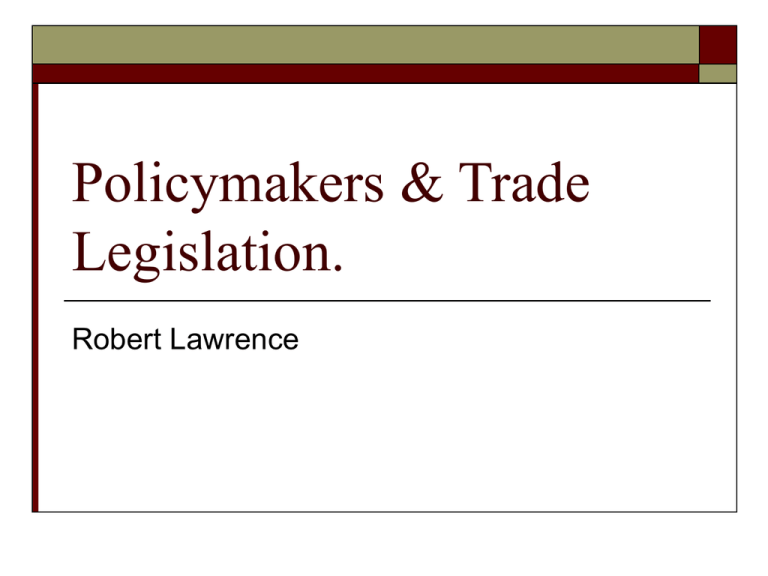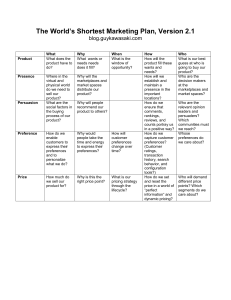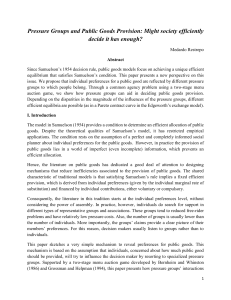Policymakers & Trade Legislation. Robert Lawrence
advertisement

Policymakers & Trade Legislation. Robert Lawrence Surveys: An Opportunity to explore Good Theory: Occams Razor: Requires Tractability. Good Empirical Work: Requires good theory and structure. Good Survey’s: Opportunities to explore What is Trade Policy Conventional framing: Tariff changes. Narrow Economic Interests. Trade policy today: Agreements: Multi-Issue. Rules Demand & Supply of Trade Policy Demand Supply constituent Policymaker preferences preferences Interest groups/parties Institutions Economic Environment Constituent Preferences Economic Interests: Consumption benefits. Factor ownership. Other Values: (Equity, Identity, Community) Knowledge Formation. Risk Aversion Interest-Groups/Parties Organizing to influence: Costs of Collective Action. Benefits. Instruments: Money. Persuasion. Information/Media Organization. Alliances Policy-Makers Preferences: Personal Interests. Institutional/Organizational Constituent Interests. General Interests. Perceptions. Symbolism. Institutions Trade-Making Authority. USA vs EU Source of Power. Elections: Districts, Party Discipline, Frequency. Perceptions, International trade: gets credit and blame. Trade votes: not only about trade: e.g NAFTA, China PNTR. Level Playing Field Policies, Costs of Policies Change: --e.g. environmental rules. Other regulations. Process: Only Game in Town? Changing constraints on domestic policies. Changing policy agendas. Winners& losers in process Changing responsibilities for trade and domestic policies. legislative committees, regulators. Changing relationships to international institutions. Interest groups respond. Legislators respond. Implications. Ask about effects on interests but also perceptions and process. Role of money versus knowledge. Ask how decisions are made as well as why. Explore relationships between positions and preferences.

